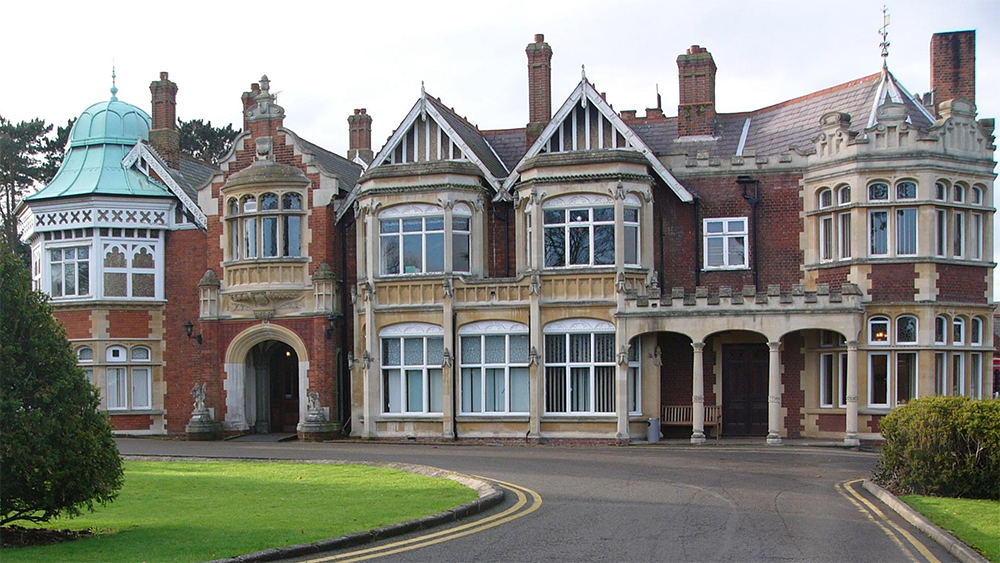Bletchley Park will train codebreaking teen hackers
Historic site will house the National College of Cyber Security


Bletchley Park will once again be home to some of the brightest young minds in codebreaking, as it hosts the UK's first dedicated training academy for cybersecurity students.
The iconic site - where Joan Clarke, Alan Turing and others broke the Germans' Enigma code during World War Two - will be the location of the National College of Cyber Security. Block G will receive 5 million of renovations in order to convert it into a state of the art security training facility.
The college will be established by Qufaro, a consortium of experts and industry figures focused on cybersecurity education, comprising representatives from BT Security, the National Museum of Computing, the Bletchley Park Science and Innovation Centre and the Institute of Information Security Professionals (IISP).
"Our cyber education and innovation landscape is complex, disconnected and incomplete, putting us at risk of losing a whole generation of critical talent," said Alastair MacWilson, chair of both Qufaro and the IISP.
"For those interested in forging a career in cyber, the current pathway is filled with excellent but disparate initiatives - each playing a vital role without offering a truly unified ecosystem of learning and support. By connecting what already exists and filling the gaps, Qufaro will make it easier for budding professionals to grow their cyber security skills at every stage of their journey, and contribute more to the sector as a result."
Designed to plug the widening skills gap in Britain's IT and infosec industries, the college will open in 2018, providing training to "the UK's most gifted 16-19-year-old prodigies". Attendance and tuition will be free, and the school will draw from all backgrounds and locations. Qufaro wants at least a third of its students to be female, which is higher than the national average for STEM subjects.
Around 40% of the college's curriculum will be devoted to cybersecurity, with the rest of the time split between complementary subjects such as maths, physics, economics and computer science. The college will be a boarding school, so roughly 90% of pupils will be expected to live there during term-time.
Sign up today and you will receive a free copy of our Future Focus 2025 report - the leading guidance on AI, cybersecurity and other IT challenges as per 700+ senior executives
Qufaro plans to invigorate the security industry in other ways. The organisation is launching teacher training programmes around cybersecurity fundamentals, as well as an EPQ (extended project qualification) in cybersecurity. A 50 million cyber innovation fund will also be set up, in order to encourage and support digital entrepreneurs.
"Existing initiatives cannot close the skills gap alone, so it is vital that we keep looking for new ways to build our talent pool," said Lord Reid, former Home Secretary and chair of the Institute for Security and Resilience Studies at UCL. "By housing this new national gateway for cyber education and innovation at the home of British codebreaking and cryptography, I believe it will be able to harness the legacy of this historic location to inspire the next generation."
"It is a fitting tribute to the incredible impact of all those who have worked at Bletchley Park over the years and I look forward to witnessing the impact I believe it can have on UK society."
Picture: Wikipedia Commons
Adam Shepherd has been a technology journalist since 2015, covering everything from cloud storage and security, to smartphones and servers. Over the course of his career, he’s seen the spread of 5G, the growing ubiquity of wireless devices, and the start of the connected revolution. He’s also been to more trade shows and technology conferences than he cares to count.
Adam is an avid follower of the latest hardware innovations, and he is never happier than when tinkering with complex network configurations, or exploring a new Linux distro. He was also previously a co-host on the ITPro Podcast, where he was often found ranting about his love of strange gadgets, his disdain for Windows Mobile, and everything in between.
You can find Adam tweeting about enterprise technology (or more often bad jokes) @AdamShepherUK.
-
 Microsoft unveils Maia 200 accelerator, claiming better performance per dollar than Amazon and Google
Microsoft unveils Maia 200 accelerator, claiming better performance per dollar than Amazon and GoogleNews The launch of Microsoft’s second-generation silicon solidifies its mission to scale AI workloads and directly control more of its infrastructure
-
 Infosys expands Swiss footprint with new Zurich office
Infosys expands Swiss footprint with new Zurich officeNews The firm has relocated its Swiss headquarters to support partners delivering AI-led digital transformation
